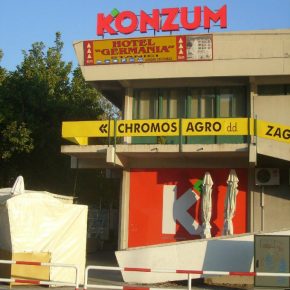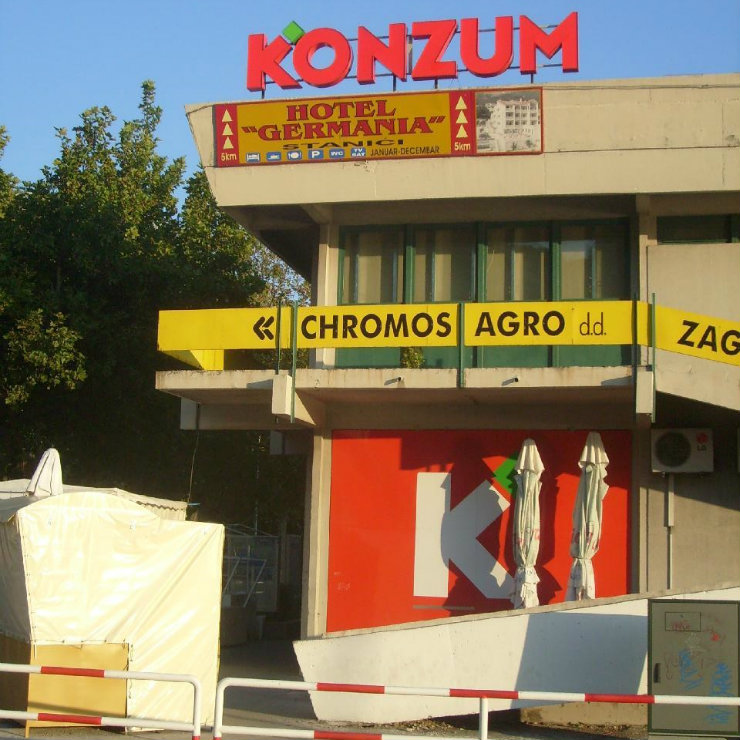Tydzień w gospodarce
Category: Raporty
Analyst, journalist specializing in the Western Balkans and Middle East domestic and foreign affairs

(Thomas Kohler, CC BY-SA)
Since the Croatian government overtook the functioning of the company (and since its CEO Ivica Todorić left for London, UK, and is waiting to see if he will be extradited for alleged company frauds) questions arise whether Agrokor will continue to be a locomotive of the Croatian industry and export. These new agreements are crucial to the future of Agrokor not solely because of the settlement of the deal and the technical part of the deal with the formation of new holdings and the transfer of ownership shares, but also because of the fact it is now possible to imagine exactly how the creditors see the biggest Croatian company.
Just a month before the agreement, Agrokor published two documents — the Entity Priority Model (EPM) and the Set of Concise Information in accordance with the Rule on Information Use of the Provisional Trust Council. The EPM is a guide through a settlement model whose purpose is to determine stakeholder claims and the rate of their settlement by each Agrokor company under extraordinary administration. The Settlement Model determines the distributive or distributable value of each company’s rights, the order of settlement and the nature of each claim, and the published 10-page guide explains the settings of that model. The compressed information set, also on 10 pages, contains information that represents the basis on which the settlement model was created and will enable stakeholders to be informed about upcoming value allocation talks. The Extraordinary Administration points out, however, that most of the published information is preliminary and subject to significant changes during the resumption of settlement negotiations with creditors’ representatives.
Nevertheless, the latest material brings the Agrokor company’s summarized value estimates for the first time ever. The estimated value of the Agrokor company, which is available to creditors of these companies, ranges from EUR1.8-3.8bn, according to a set of summarized information. Estimated value for each of the companies is expressed in the range of the lowest and most estimated values, and it is also indicated that because of the value of equity in subsidiaries, the value of non-core assets and the settlement of intercompany loans, the available distributive value for creditors may be higher than the valuations presented. The highest value is estimated for retail network Mercator, which is not under extraordinary administration, between EUR763m and EUR1.47 bn. Following is water bottling company Jamnica, with an estimated value between EUR393-577m, then ice cream producer Ledo, between EUR224-348m, agricultural-industrial company Belje, between EUR150-368m, and retail company Konzum, between EUR140-336m.
A set of summarized information that has been introduced to creditors brings and presents the future pro-forma corporate structure of the so-called New Groups. Namely, a significant step in resolving the existing business and achieving its sustainability in the future is the transformation of debt arising before the opening of the equity process and structurally subordinated debt instruments. Preliminary estimates are that up to EUR530m of claims arising prior to the opening of the extraordinary administration procedure would not be subject to write-offs and would be re-established in the new group after the restructuring. It is also emphasized that the estimated amounts are preliminary and are based on the current assumption that the value of the pledge is at least equal to the value of the claim for each secured claim.
Owners of 95 per cent of the company will be the 20 largest creditors, including the largest single owners, the Russian state bank Sberbank and VTB Bank, as well as Knighthead Capital, the US venture capital fund. They have a majority of 56 per cent in Agrokor and can take all decisions. There are also local banks and large domestic companies. The Russians practically have the majority, they only have to realize it either through a solid deal with one of the co-owners or by buying an additional stake. Even 95 per cent of Agrokor’s ownership will have its twenty largest creditors, and the ownership structure will settle down with a company in the Netherlands as it has been so far.
If we look at Agrokor as a pyramid-shaped structure, then at the top there will be a foundation, whereby creditors will enter a deposit certificate of ownership and the share will depend on the amount of debt they claim. The foundation will own two other companies, a roof company and a Dutch holding company (To Co and Hold Co) which, according to their organization and manner of work, correspond to what is in the Croatian limited liability company. Holding will own the same percentage of ownership in the current Agrokor companies as solvent and foreign-owned subsidiaries owned by Agrokor. However, even Agrokor companies that are insolvent will receive their mirror companies, which will be cleaned of debt and their 100 per cent owner will be a new holding in Croatia. This includes the biggest companies in the Agrokor cluster. A new EUR1.6bn loan will be transferred to the new holding, and new companies will have to repay the debt secured in mortgages and the other debt will either be converted by the Dutch holding or will be written off.
Agrokor and Sberbank have signed an agreement that allows Sberbank to return to settlement negotiations, as foreseen by the extraordinary administration recognizing Sberbank’s claim, while the Russian bank will withdraw its claims. This was agreed between new governmental extraordinary trustee for Agrokor Fabris Peruško and Sberbank’s representative Sergei Volk. They have laid down the principles under which Sberbank and its affiliated companies will withdraw the lawsuits filed against Agrokor and its affiliated companies in a timely manner according to which the Extraordinary Commissioner will admit Sberbank’s disputed claims and propose that Sberbank’s receivables be included in an updated list of claims filed with the Commercial Court in Zagreb. The agreement means that the extraordinary administration recognizes the Sberbank claim, while on the other hand Sberbank will withdraw its lawsuits in the agreed period of time. Sberabank is the largest creditor of Agrokor, with claims of about EUR1bn.



